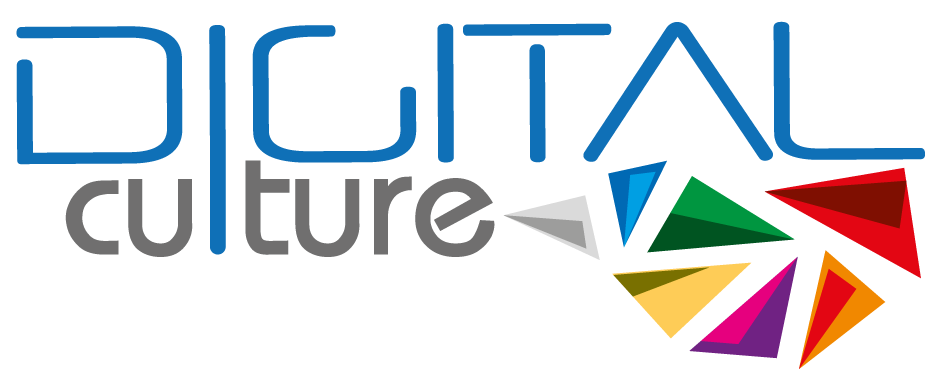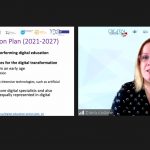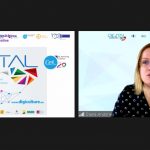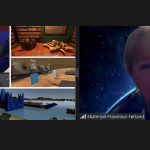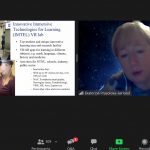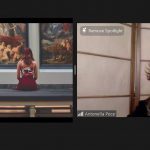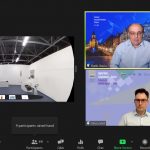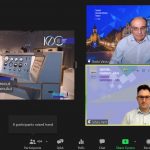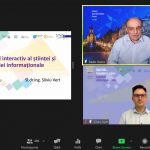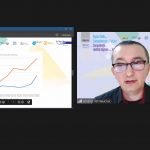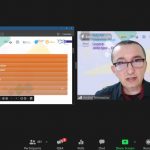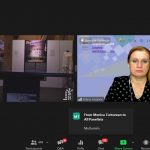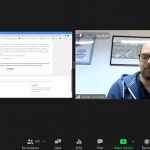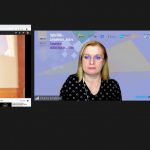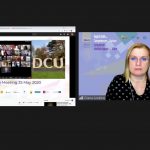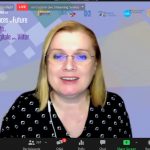What are digital skills and competences, and how can they be integrated into education and the creative industries? In a period when educational institutions and cultural activities have moved mainly in the online, digital skills and competences become a “must-have” for the society of the future.
The 5th edition of the international Digital Skills workshop took place online on Wednesday, December 16, at 15:00 and brought practical examples of the use and integration of digital elements, web, mobile, and virtual reality applications (AR & VR) in education, culture and in the promotion of cultural heritage and creative industries.
The attendance was free, the presentations were held both in Romanian and English and a certificate of attendance was issued.
With international speakers from the USA, Europe, and Romania, the workshop was addressed to all actors in the field of education and creative industries, students, university professors, and the general public.
With over 1500 registrations and over a thousand participants, the workshop was a real success for digital education.
The experts shared their practical experience about digital education and provided recommendations to participants for improving their digital skills, encouraging the development of a high-performance digital education ecosystem
Prof. univ. dr. Radu Vasiu , President of the UPT Senate and director of the Multimedia Centre, opened the event. Then, Dr. Diana Andone , Director of CeL, took the floor and explained the importance of digital transformation, talking about the EU Action Plan for Digital Education (2021-2027).
Dr. Diana Andone emphasized the importance of lifelong learning, skills development, and the need for digital intelligence in the future.
Prof. dr. Ekaterina Prasolova-Førland was the next speaker – who spoke to the participants about immersive learning in the context of COVID-19 – the most current topic in recent times, in all spheres, but especially in education. She presented practical examples of integrating AR & VR elements in education and their benefits during the pandemic period.
The following speaker, named prof. dr. Antonella Poce spoke about the development of transversal skills in VR heritage environments, focusing on young people and the efficiency of digital stories and digital museums to develop critical thinking in a context of cultural heritage.
Prof. Dr. Eng. Radu Vasiu , along with Sl. dr. eng. Silviu Vert presented one of the top projects in Timisoara, namely – Interactive Digital Museum of Information Science and Technology , talking about the project’s purpose – educating and attracting young people to the latest information technologies.
Interactive Digital Museum of Information Science and Technology
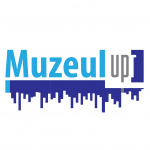
Interactive Digital Museum of Information Science and Technology – another example of a concept in which the premieres of Timisoara technology, as well as the latest information on cutting-edge technology, are combined in a virtual space through a web application that integrates 3D simulations, elements of virtual reality, virtual and interactive tours – in order to educate and attract young people to STEM education.
The series of Timișoara and international projects on digital skills, developed within the e-Learning Centre and the Politehnica University of Timișoara, was continued by Sl.dr.eng. Vlad Mihăescu , who presented the ongoing actions, but also the latest projects. All these projects are based on the purpose and mission – to develop and improve digital skills and competences for digital transformation.
Sl. dr. eng. Andrei Ternauciuc , talked about the impact of digital education in the Politehnica University of Timișoara and the critical element for good development of teaching activities, especially in the current context.
Andrei presented the CVUPT platform, based on Moodle, explaining its functionality and how it made possible online education exclusively in the university during this period.
One of the most interactive presentations was given by assoc. prof. Hendrik Knoche . He spoke about the launch of digital courses; his presentation was followed by a practical session through which participants could test live using such a platform.
Spotlight Heritage Timișoara

A point of interest of the workshop was represented by the Spotlight Heritage Timișoara project’s presentation by Diana Andone. This project can be a case study, both for actors in culture and those in education and creative industries. The project combines concepts of digital heritagepromotion, with integration in web, mobile and augmented reality applications,but also ways to cultural involvement of communities and education of young people.
The next speaker, dr. Mark Frydenberg , took the audience for a “walk” through a series of activities carried out during the ten years of CIS SandBox, activities based on digital technologies.
Assist. dr. Walter Scholger showed the participants how to put into practice theories for data protection, the expert then presenting them with the ELDAH consent form.
Prof.dr.eng. Carmen Holotescu – explained to the audience about Blockchain technology and the certification of competencies on Blockchain, about the multiple possibilities of integrating this technology in the cultural field and its use in a series of European projects.
At the end of the workshop, the Digital Culture project team – represented by Diana Andone, made a brief introduction about the project and its mission; the event ended with a practical activity for participants and a series of free discussions on future technologies presented.
Dozens of questions and messages of appreciation were addressed to the presenters. The participants expressed their interest and gratitude for the topics presented.
This workshop’s presentations are part of the Erasmus + DigiCulture project’s strategy – Improving Digital Skills and Improving the Social Inclusion of Adults in the Creative Industries to build a free online course.
The event was organized by the ID / IFR and e-Learning Centre, with the support of the EDEN International Association and IEEE Romania.
